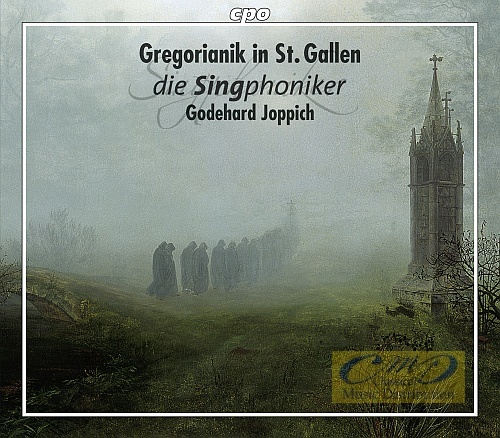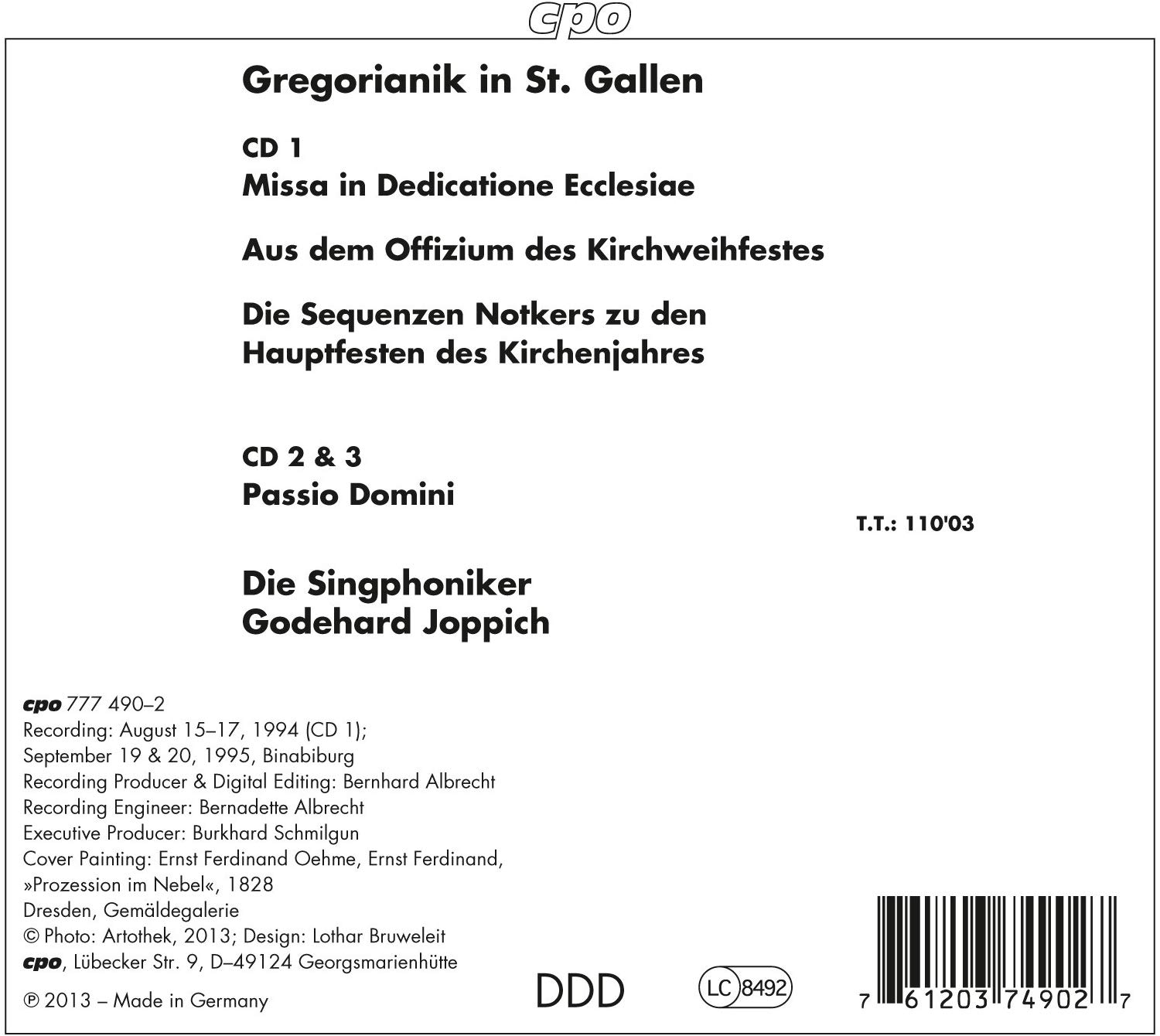
tytuł
Gregorianik in St. Gallen - Missa in Dedicatione Ecclesiae, Passio Domini
wykonawcy
Die Singphoniker;
Joppich, Goedhard
Joppich, Goedhard
nr katalogowy
CPO 777 490-2
opis
During the 1990s we released three CDs featuring Gregorian chants from the St. Gallen Abbey in interpretations by the Singphoniker directed by Godehard Joppich. Responding to popular demand, we are now re-releasing these three CDs (no longer in our catalogue) in a box set at a special price. After their first release the resonance in the press was extremely positive. For example, St. Gallen's Abendzeitung raved, »Exemplary! In voice and intonation, the purist Gregorian chant«; and the same city's Tageblatt wrote, »It is as if a fresco long hidden from view had suddenly been unveiled.« The ordained priest Godehard Joppich played a major role in the discovery of these chants. The Singphoniker wrote as follows of this encounter: »Our first encounter with Gregorian chants as an ensemble – and for some of us our first real encounter ever with this music – simultaneously represented the first encounter of the Singphoniker with Godehard Joppich. He was teaching at the College of Music in Munich. In a glowing lecture on the topic of this music, this man was able within the shortest time very effectively to convey to those in his audience just what it was about. When one bears in mind just how removed we are from the time of composition and the musical structure of Gregorian chants, this is a phenomenal achievement. We later agreed to cooperate in a musical project, and Godehard Joppich had found what he had sought: an ›unprejudiced professional ensemble‹ into which he could breathe the Gregorian soul. Or, to rephrase things a bit: a vocal ensemble formed by trained musicians, experienced in singing as a team, primed for homogeneity, outside the frequently laming tradition of a ›school of interpretation‹, met a Gregorian specialist familiar with his subject both in theory and practice. The Singphoniker were able to learn a lot about the combination of word and tone, about rhetoric, theological aspects, and about the attempt to capture this art of textual interpretation in so-called neumes. It is precisely on the present recordings that the following is rendered apparent: what we have in these chants is not music for ›tuning out‹, not a musical treat, but the deepening of the dramatic event, the reexperiencing of suffering, an approach to the Redeemer« (Singphoniker / Christian Maria Schmidt).
nośnik
CD
x 3
gatunek
Muzyka klasyczna
producent
CPO
data wydania
20-03-2013
EAN / kod kreskowy
761203749027

(Produkt nie został jeszcze oceniony)
cena 78,00 zł
lubProdukt na zamówienie
Wysyłka ustalana indywidualnie.
Darmowa wysyłka dla zamówień powyżej 300 zł!
Darmowy kurier dla zamówień powyżej 500 zł!
sprawdź koszty wysyłki























